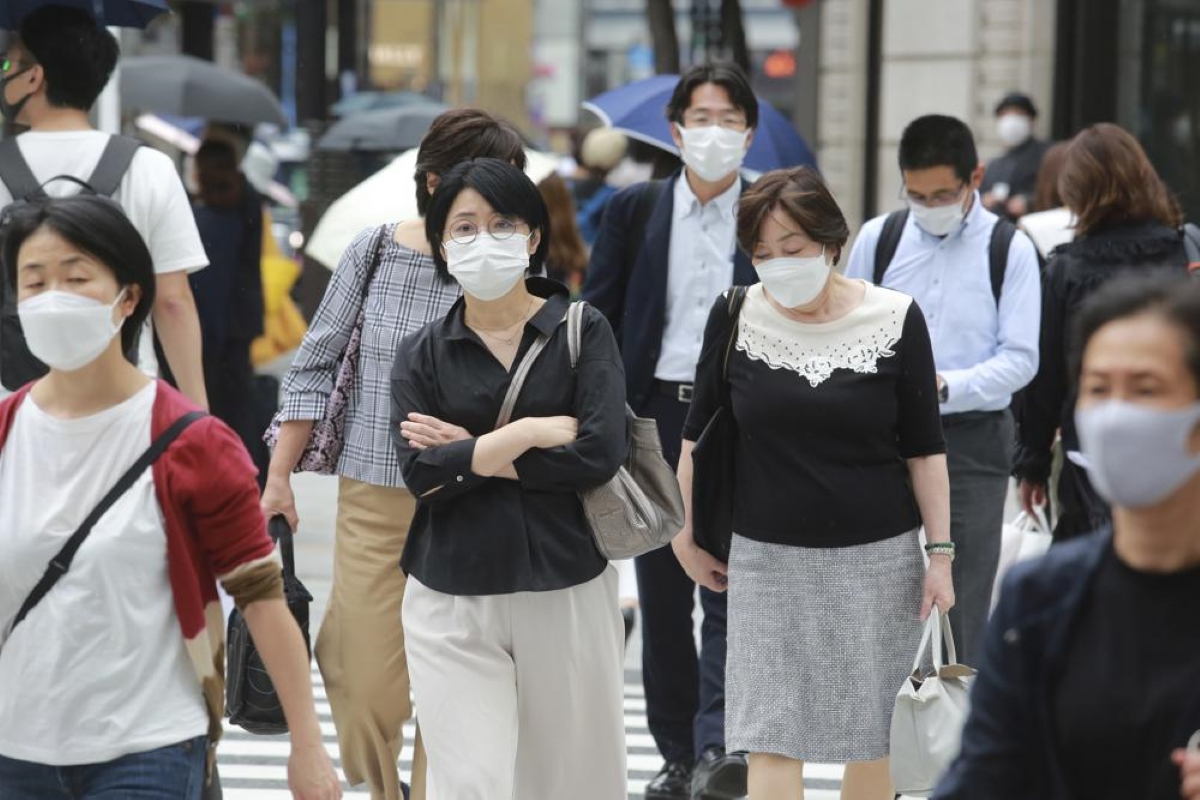Emergency OTT release: When and where to watch Kangana Ranaut’s movie?
Kangana Ranaut's 'Emergency' is a political drama depicting India's 1975 Emergency, with Ranaut portraying former Prime Minister Indira Gandhi.
The proposal is for 19 of the current 21 prefectures to stay in a state of emergency, while Okayama in the west and Miyagi in the north, where hospitals now have rooms, will be downgraded to semi-emergency status

People wearing face masks walk on a street in Tokyo.
Japan is to further extend a state of emergency in Tokyo and nearly 20 other areas until the end of September as the health care systems remain under severe strain though coronavirus infections have slowed slightly.
The current emergency, which was to end on Sunday, was issued in Okinawa in May and gradually expanded. Despite the prolonged emergency, the largely request-based measures have become less effective as the exhausted public ignores them.
Advertisement
The planned extension covers a period when Japan’s government is in transition. Prime Minister Yoshihide Suga is not running in a Sept. 29 race for his party’s leadership, and his successor likely will be the next prime minister.
Advertisement
His government has faced steep criticism over virus measures seen as too late and too small to be effective and for holding the Olympics despite public opposition during a pandemic.
Economy and Fiscal Minister Yasutoshi Nishimura, also in charge of COVID-19 measures, proposed the extension of the emergency at a meeting Thursday, saying that serious cases remained high and still are overwhelming many hospitals and tens of thousands of patients are staying at home or makeshift facilities.
“We need to stabilize the medical systems and make sure the infections are steadily decreasing and relieve extra burden on the healthcare systems,” Nishimura said.
The extension will be formally announced later Thursday. The proposal is for 19 of the current 21 prefectures to stay in a state of emergency, while Okayama in the west and Miyagi in the north, where hospitals now have rooms, will be downgraded to semi-emergency status.
The government, meanwhile, is studying a road map for easing restrictions around November when the large majority of the population is expected to be fully vaccinated. The easing of restrictions would allow the fully vaccinated to travel, gather for parties or attend mass events.
As of now, about 49% of the people have completed inoculations and the rate is expected to exceed 60% by the end of September, Nishimura said.
Japan has done much better than other developed countries in the number of cases and deaths without having a lockdown, but the country has been struggling with waves of upsurge propelled by more contagious new variants. Japan has about 1.65 million accumulated cases and 16,500 deaths.
Advertisement